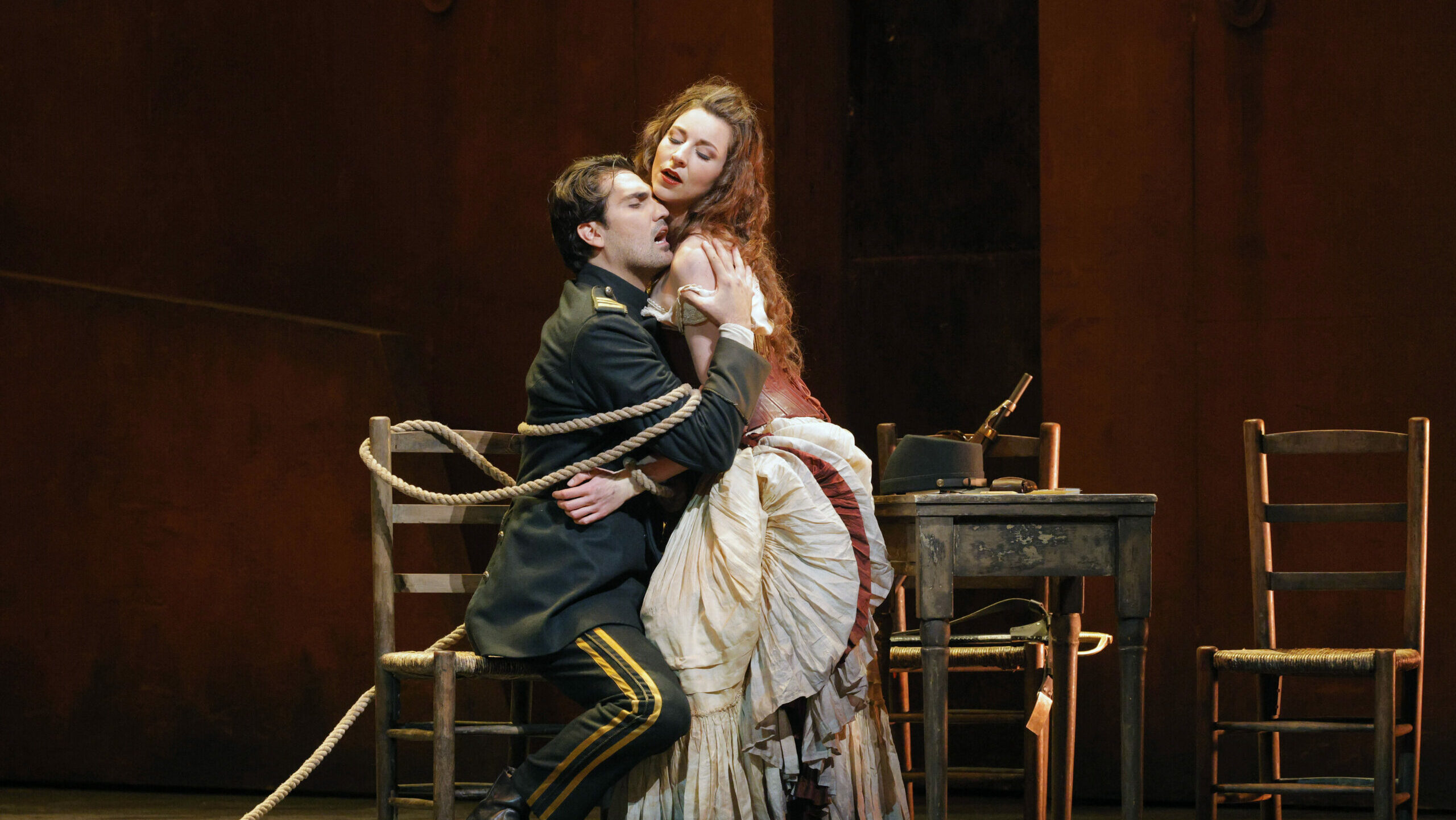
For thirty years, Teatro Grattacielo’s specialty has been obscure, often forgotten works of the Verismo era, the time, roughly between Verdi and World War II, when the Italian orchestras had become as skillful as the Germans or the French. Suddenly there were intermezzi between acts, not just overtures to start the evening. Verismo was the school that exploited the new orchestral colors, but the school also featured outsize, passionate (if not tremendously agile or ornamental) voices, in order to make themselves heard and felt over the new orchestras (often in new, larger opera houses). Teatro Grattacielo has been beloved for its choice of adept, intense young singers as well as its fine orchestral playing of forgotten Italian scores.
Under new management, the company no longer confines itself to Verismo or to concert stagings, though the focus will remain on little-known works, sizable voices and the orchestra. At La Mama on West Fourth Street on Sunday night, they staged a world premiere, Beyond the Horizon, a work not quite completed at the death of Nicholas Flagello, an American composer committed to the Verismo tradition as postwar American opera composers interpreted it. Flagello died in 1996 after a long illness, leaving this, his final opera, to be orchestrated by Anthony Sbordoni. It proved an intriguing, often vivid but not tremendously endearing piece, the gloom of its story unredeemed by appealing melody.
Two brothers love the same girl, and we opera-lovers sit back, happily: we’re in Trovatore country! Not exactly. Beyond the Horizon, is closely based on an early play by Eugene O’Neill, and like much domestic O’Neill, it’s grim grim grim. The play earned its author his first Pulitzer Prize in 1920, perhaps because its claustrophobic realism savored of classical tragedy (O’Neill loved classical tragedies) and seemed a realistic response to American life. But the play is seldom revived—it’s too depressing and the characters’ dilemma too slight. This tight focus might have made it eligible for an opera libretto if the composer had fleshed it out, given it orchestral atmosphere or elaborated on the individual characters. This Flagello failed to do.
The two brothers work the family farm in, evidently, New England. Hardworking Andy is going to stay in town and hopes to marry Ruth Atkins, the girl next door. Brother Rob is going to sea with their maternal uncle. But Rob writes poetry, and Ruth finds the poetry attractive, so she … changes her mind. And Rob’s. Disappointed, Andy goes to sea. Years pass. Ruth has a kid but the farm suffers and she realizes she doesn’t love Rob after all. Andy comes back, but by now he prefers life at sea. Nearly everybody dies, but not operatically, … just from some ailment between acts. All their lives are ruined.
The moral? Well, one moral is that Eugene O’Neill may just not be opera fodder. I’ve always been sorry Puccini did not live to see Desire Under the Elms with its simmering lusts—somebody else opera-ized that, and it flopped—and the operatic Mourning Becomes Electra is an empty score. Musicals were based on Anna Christie and Ah! Wilderness, but neither was a huge hit.
What Beyond the Horizon needs is a brooding oceanic background or a brooding anti-hero—I kept comparing it in my head, unjustly, to Peter Grimes, with its witty caricatures of townsfolk set against vast waves of sea sound, but such substance just wasn’t here. Flagello was among the last American composers to believe, seriously, in romantic melodrama as a language for operatic theater, but none of his half dozen operas made much of a splash. Sbordoni’s orchestration was full of charming and suitable touches but nothing to sweep the story off its feet or make you like these unpleasant people.
One can’t fault the singers. New York is full of able young singers, and the solid cast sank their teeth into the roles as Flagello set them. Sara Kennedy gave us Ruth’s sentimental ideals that curdle before our eyes, and she had the only thing resembling an aria, a lament for disappointed hopes—but not, alas, a mad scene. Carla López-Speziale sang her harridan mother’s tirade in a rich, snarling contralto that promised a Klytaemnestra in her near future.
The Mayo family were represented by John Bellemer, a full-voiced spinto tenor, whom I’d like to hear attempt a Britten role, as Rob, and John Robert Green, a burly baritone as the earthier Andy. Ian Silverman, perhaps hampered by the narrow thrust stage or O’Neill’s uninventive tale, guided the staging, and Christian Capocaccia led the small but expert orchestra in its vivid, restless background scoring.
The company’s next project will be a presentation of Mascagni’s charming pastorale, L’Amico Fritz.
Photo: Teatro Grattacielo


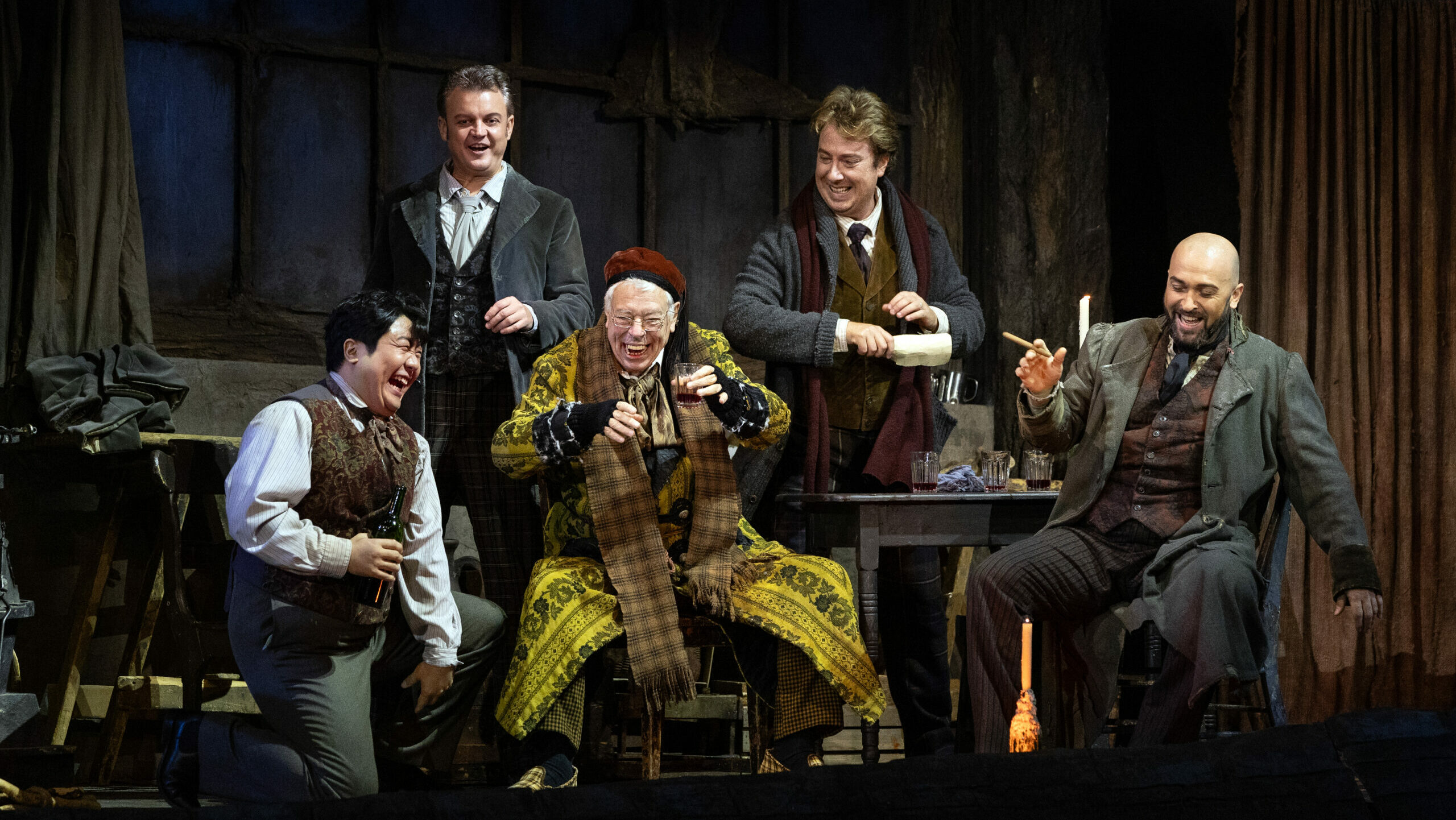
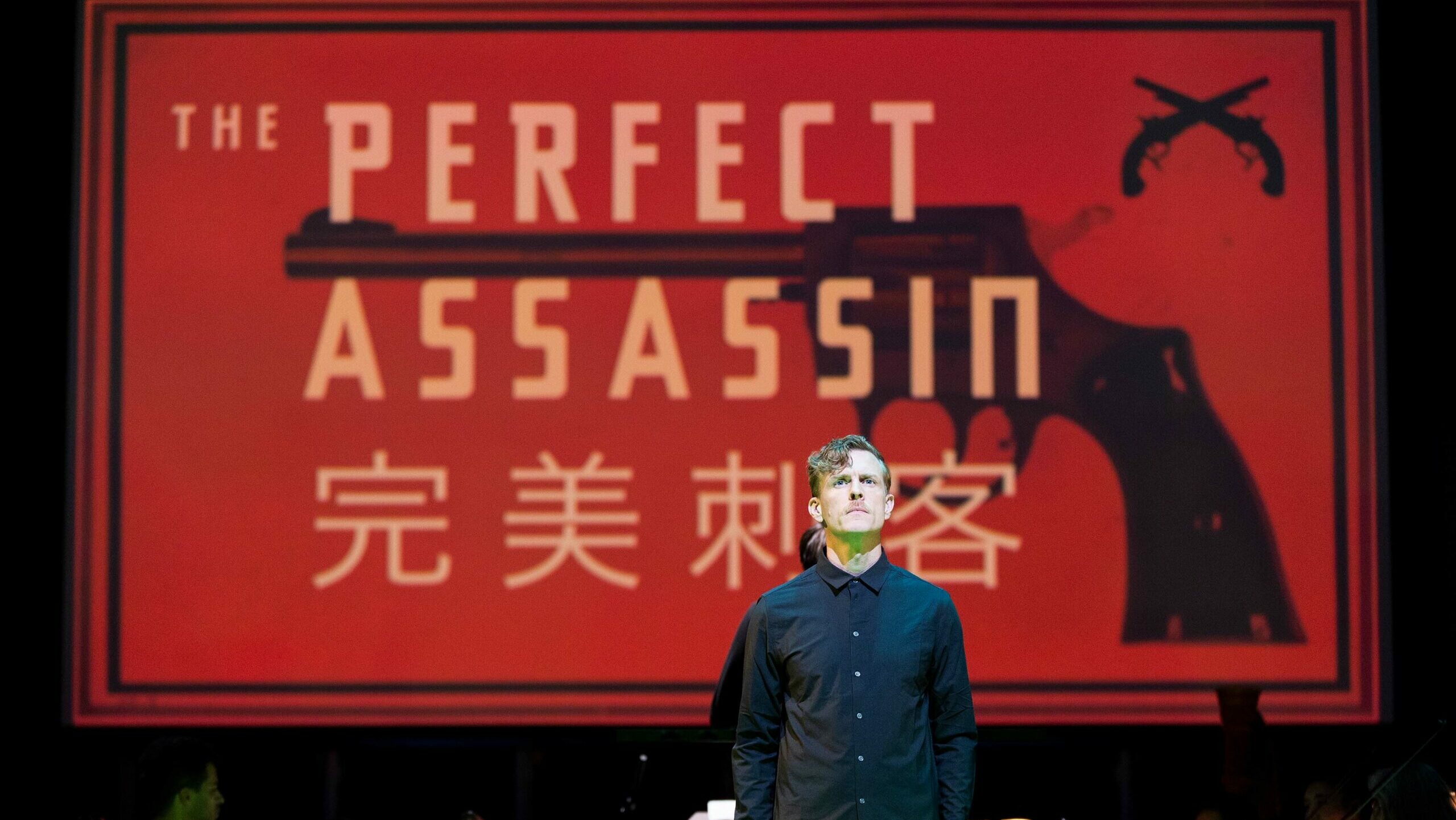
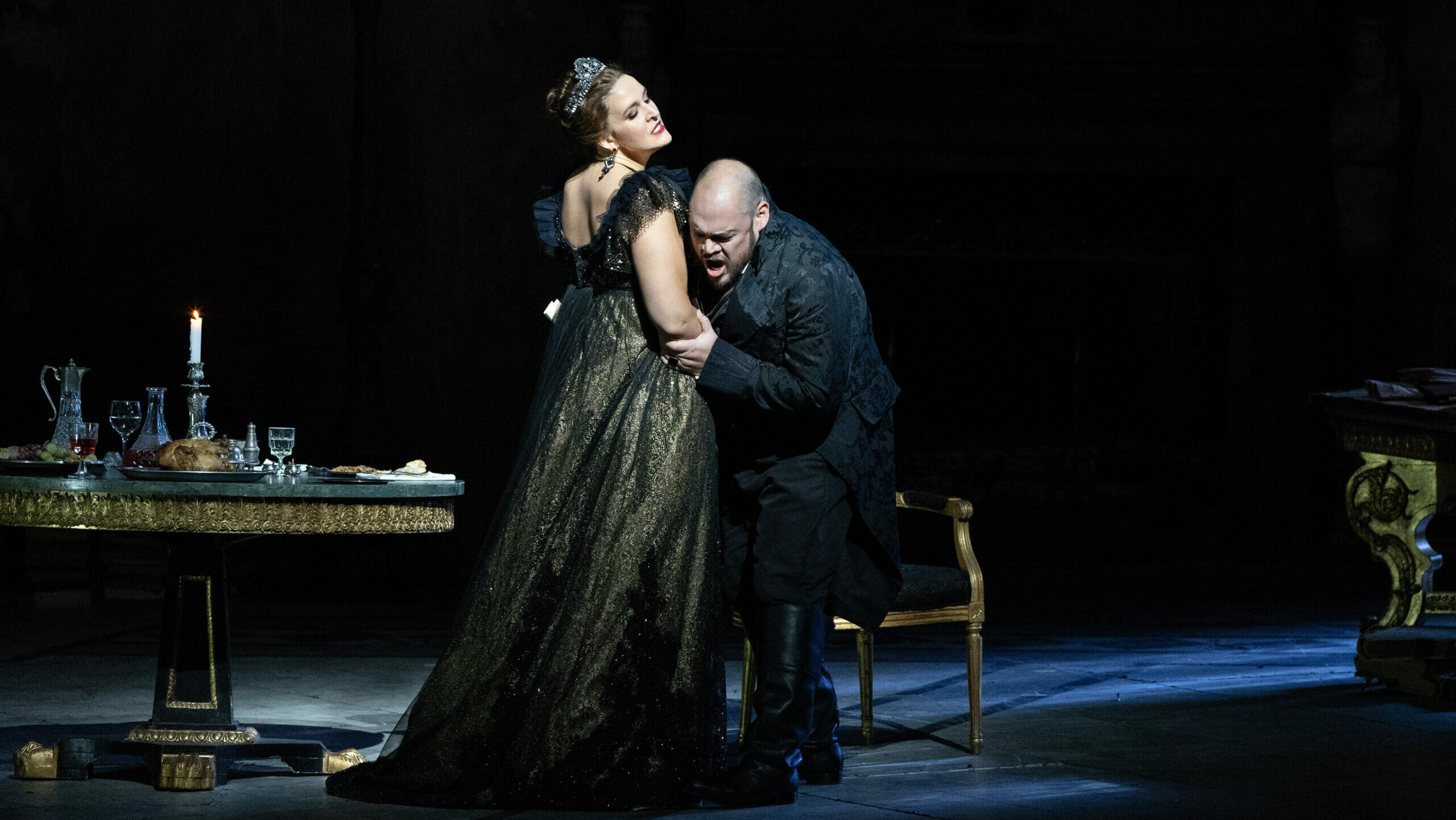


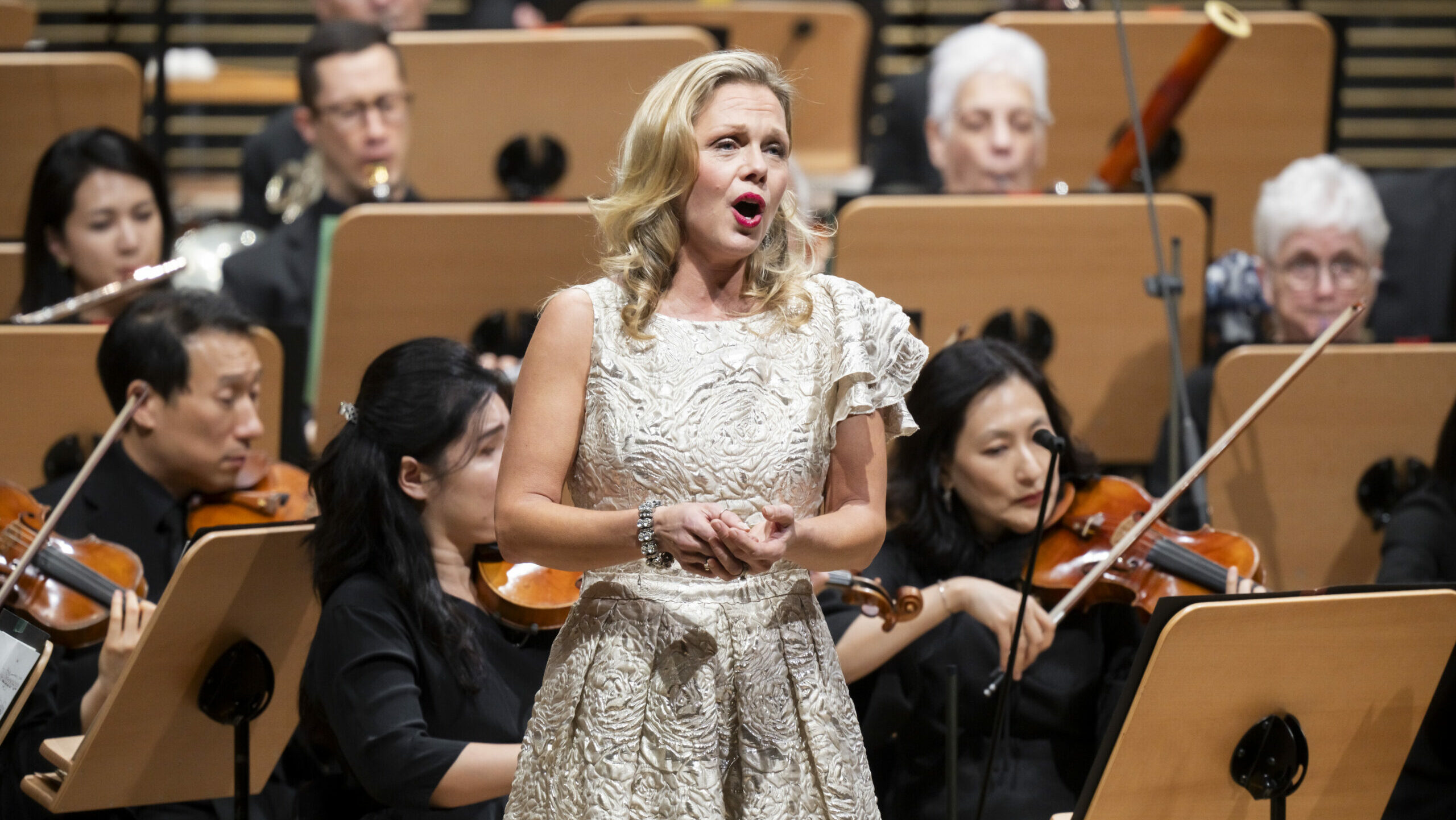
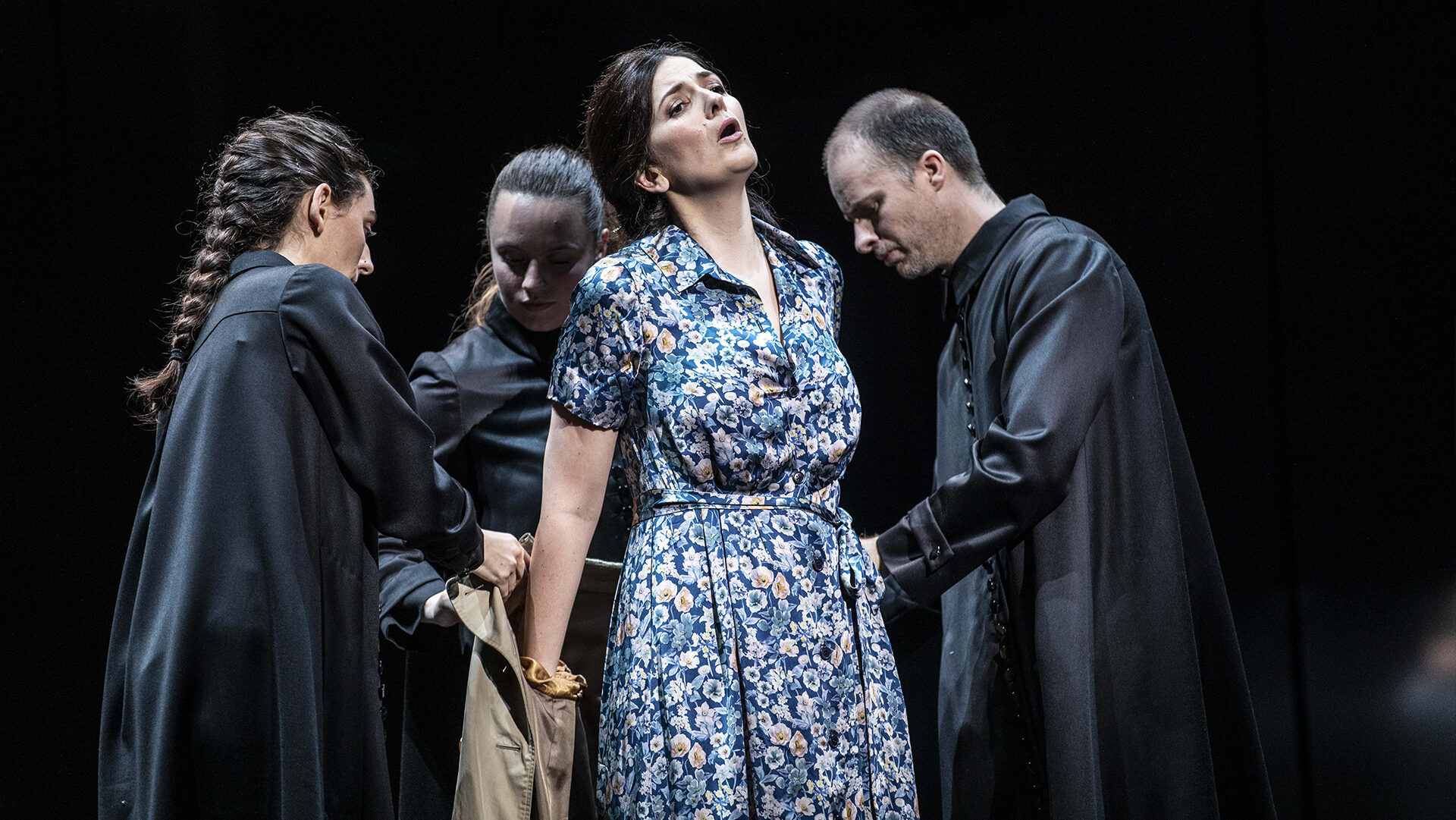
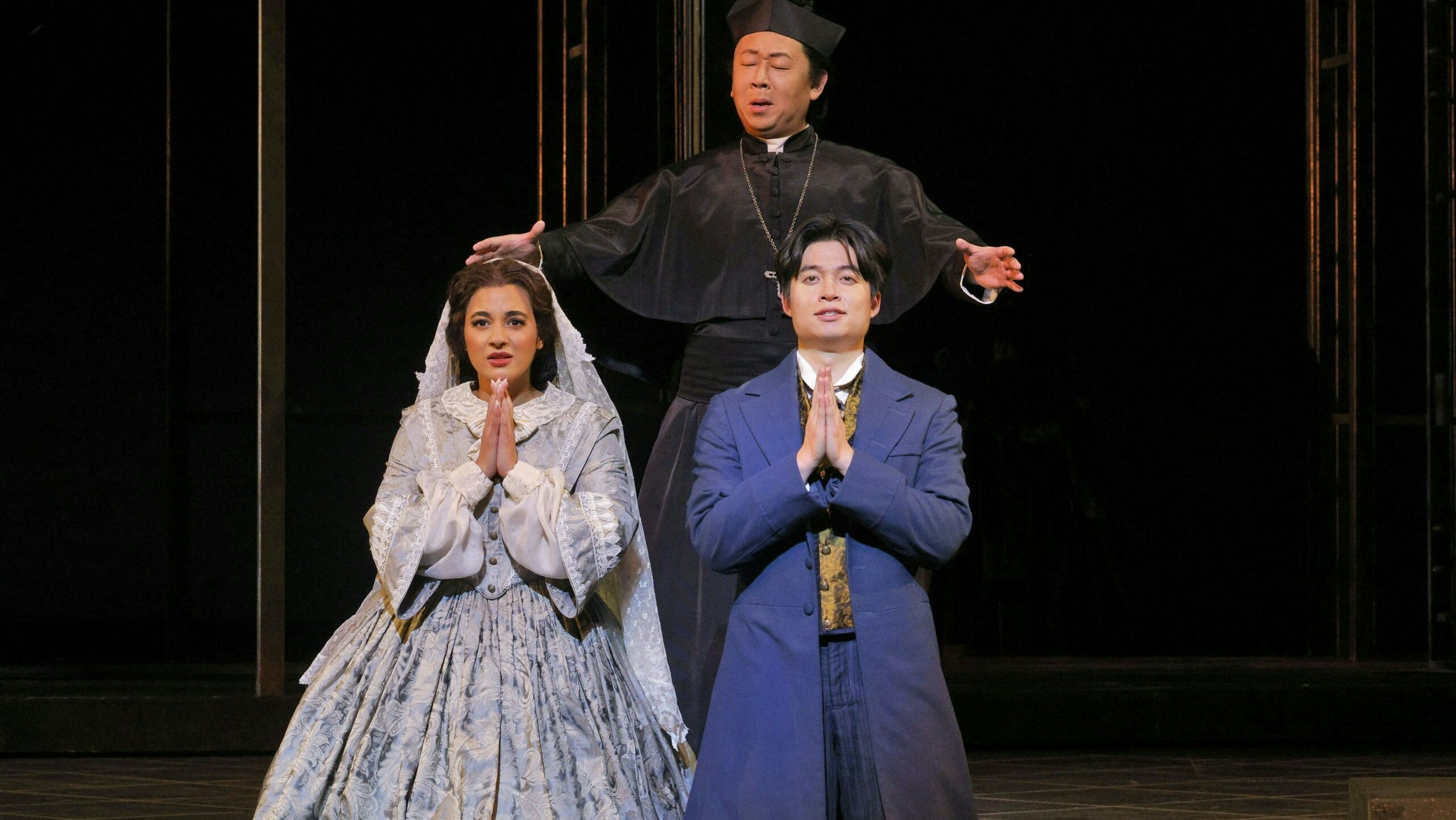
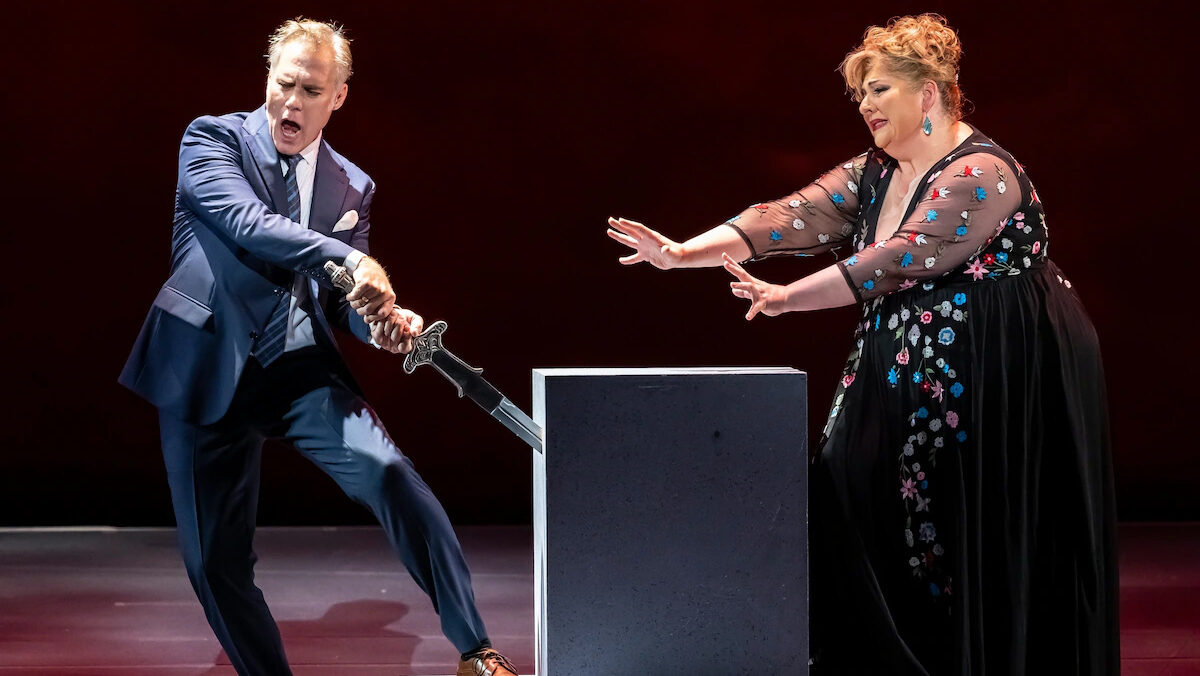
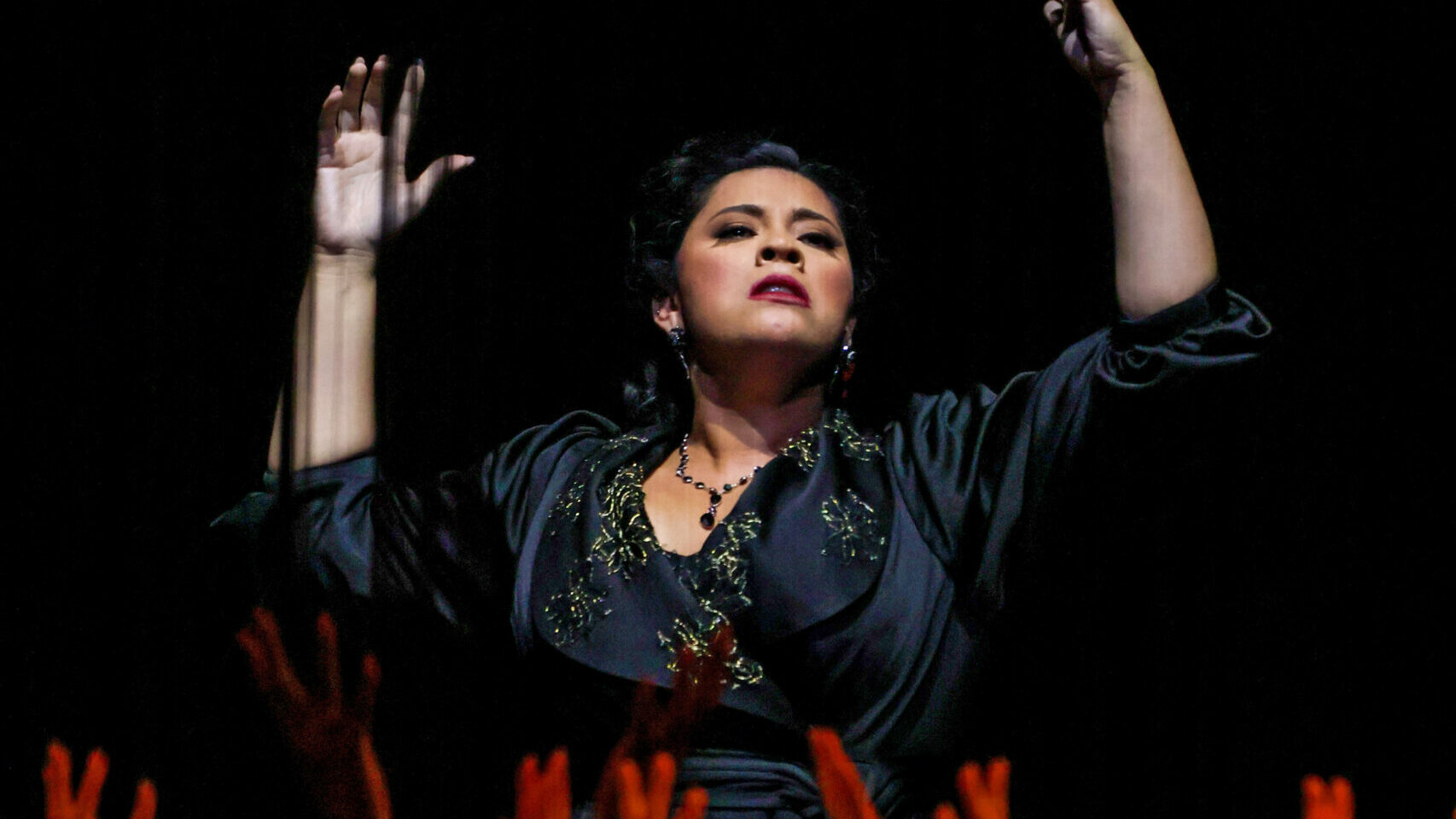
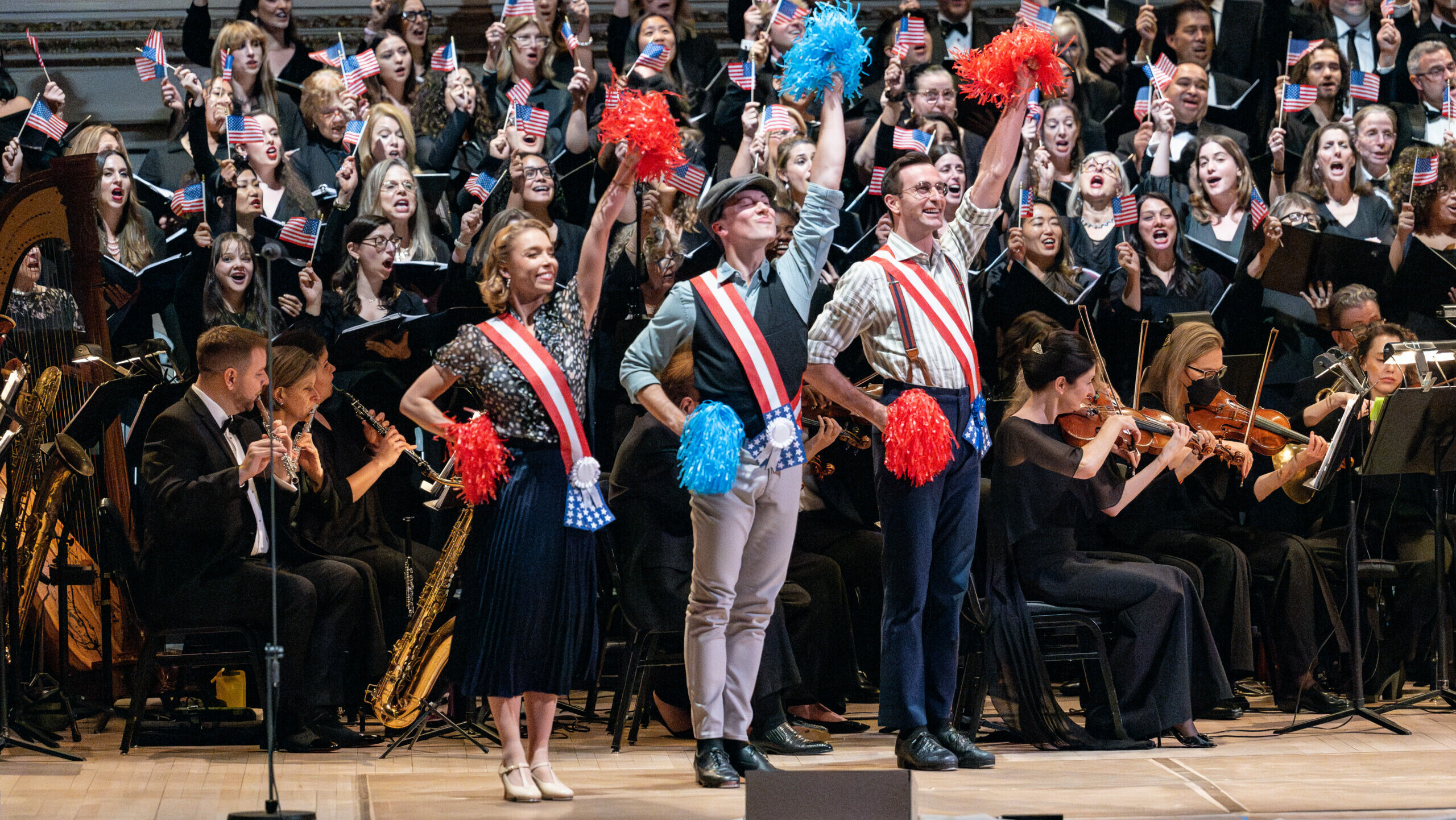
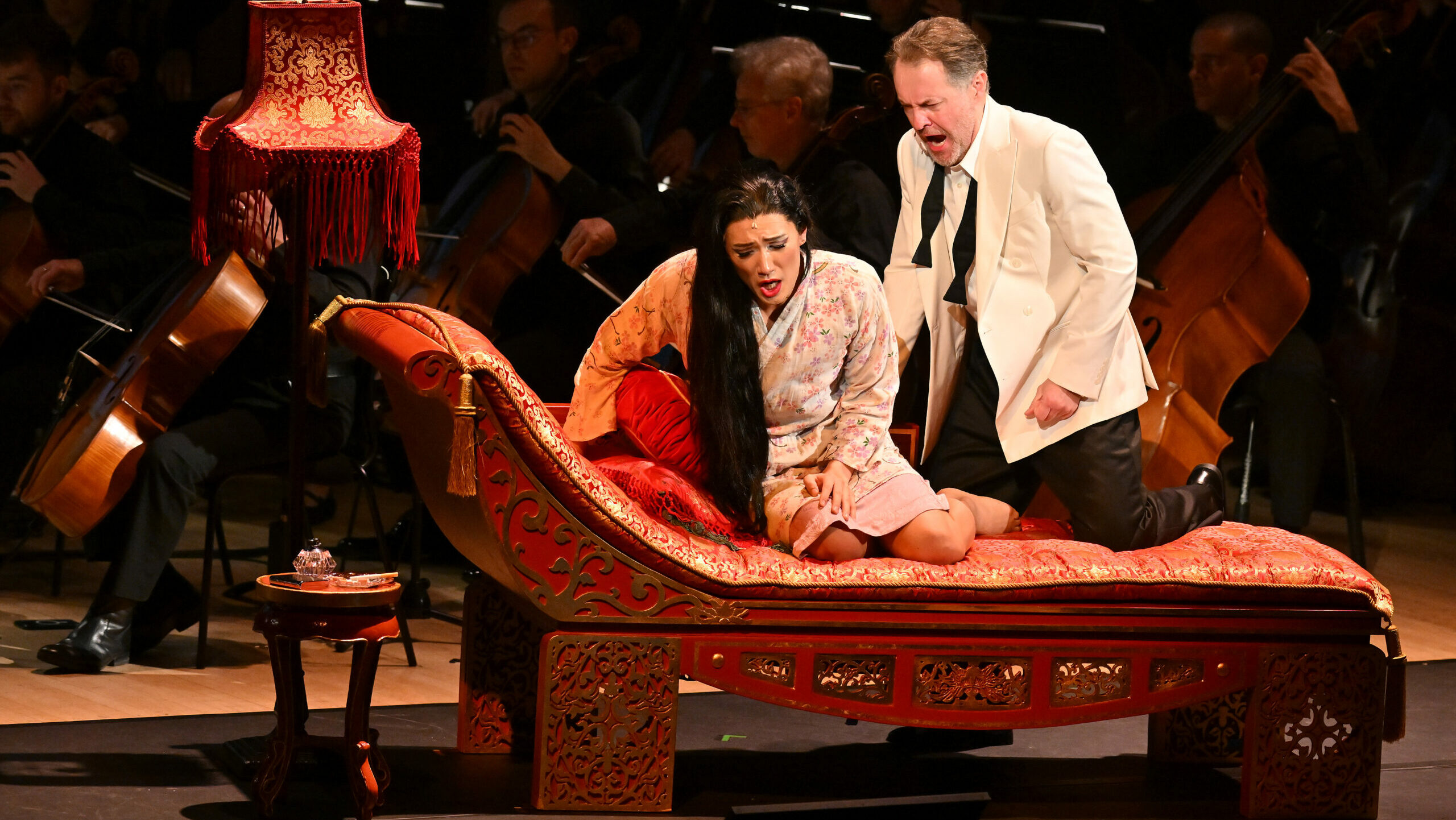
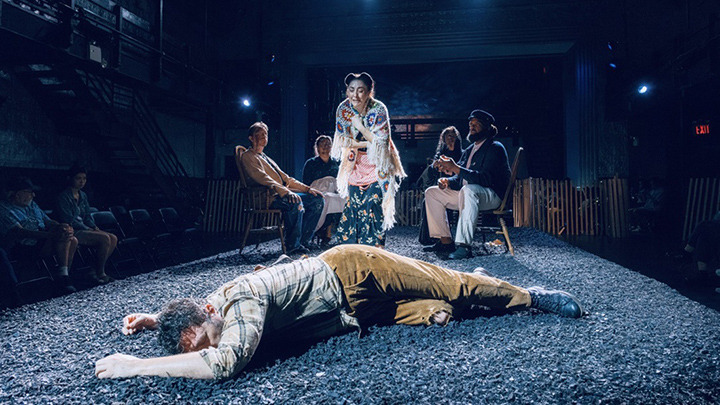





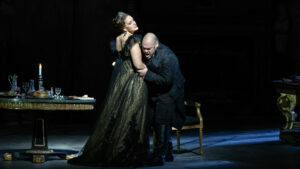
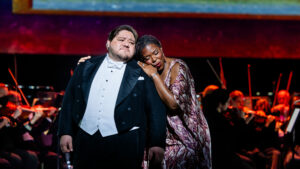




Comments